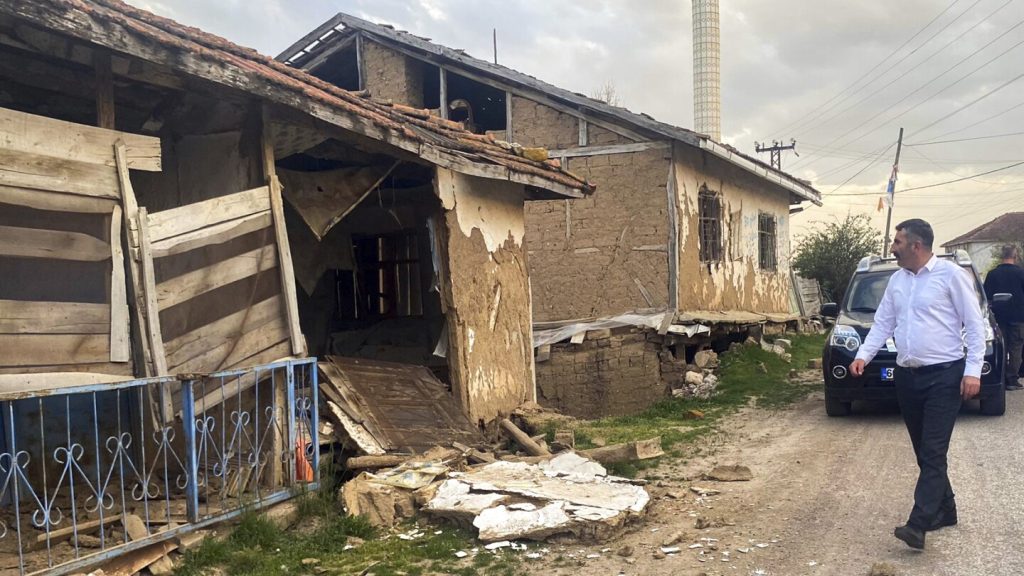Turkey, a country prone to earthquakes due to its location on active fault lines, experienced a moderately strong earthquake in central Turkey on Thursday. The 5.6 magnitude quake struck in the town of Sulusaray, in Tokat province, causing damage to some buildings. While there were no immediate reports of deaths or serious injuries, the disaster agency reported that a two-story building collapsed in Yozgat, a neighboring province. Additionally, several mudbrick and wooden homes and barns were damaged in the village of Bugdayli near Sulusaray. Earlier in the day, Sulusaray had experienced two other earthquakes measuring magnitudes of 4.7 and 4.1.
Residents in the affected areas described feeling the tremors and witnessing the damage caused by the earthquake. Gazi Ay, a resident of the town of Turhal located 80 kilometers north of Sulusaray, recounted how everything swayed like a cradle during the quake, prompting everyone to run out of buildings. Many of his neighbors were too afraid to return to their homes, highlighting the fear and uncertainty that earthquakes bring. This latest earthquake serves as a reminder of Turkey’s vulnerability to seismic activity and the importance of preparedness and disaster response measures in the face of such natural disasters.
Turkey has a history of devastating earthquakes, with a magnitude 7.8 earthquake hitting parts of southern Turkey and neighboring Syria last year, resulting in the tragic loss of over 59,000 lives. The frequency of earthquakes in the region underscores the importance of building structures that can withstand seismic activity and implementing effective early warning systems to minimize casualties and damage. The country’s disaster management agency, along with local authorities, will likely assess the impact of the recent earthquake in central Turkey and provide assistance to those affected by the disaster. As the region continues to experience aftershocks and potential dangers, residents are urged to remain vigilant and follow safety guidelines to ensure their well-being during such seismic events.
The swift response from emergency services and local authorities following the earthquake in central Turkey is crucial in assessing the extent of the damage and providing assistance to affected communities. With no reported deaths or serious injuries thus far, the focus will likely be on supporting those who have been displaced or affected by the earthquake. Repairing damaged structures, ensuring the safety of residents, and conducting thorough assessments of the affected areas will be key priorities in the aftermath of the seismic event. As Turkey grapples with the aftermath of the earthquake, it serves as a reminder of the constant threat posed by seismic activity in the region and the need for ongoing preparedness and resilience measures to mitigate the impact of such natural disasters.
The Turkish government, along with international aid agencies and humanitarian organizations, may mobilize resources to support relief efforts in the affected areas. Providing emergency shelter, medical assistance, and essential supplies to those in need will be critical in the immediate aftermath of the earthquake. Additionally, efforts to strengthen infrastructure, improve building standards, and enhance early warning systems can help prevent loss of life and mitigate the impact of future earthquakes. As communities come together to rebuild and recover from the recent seismic event, solidarity and support from both local and global partners will be essential in ensuring a swift and effective response to the crisis.


